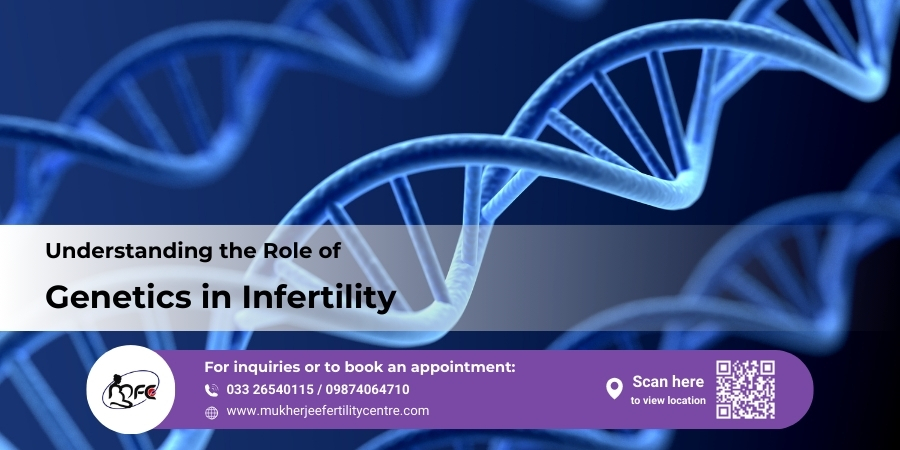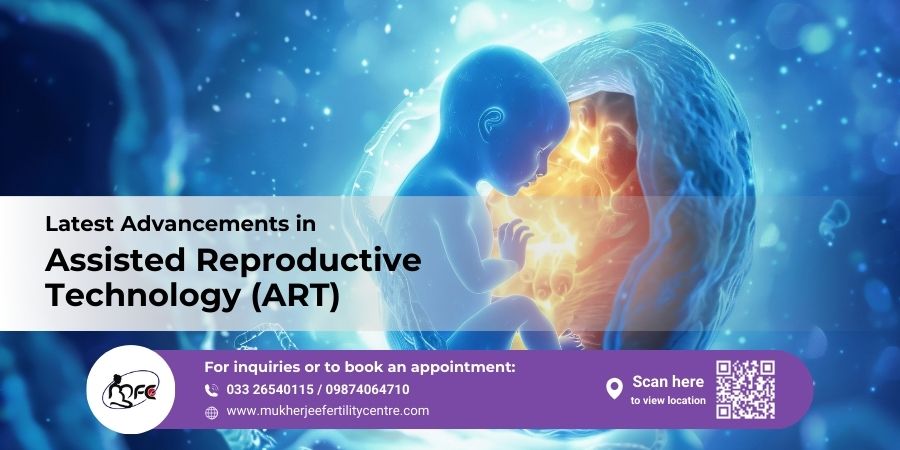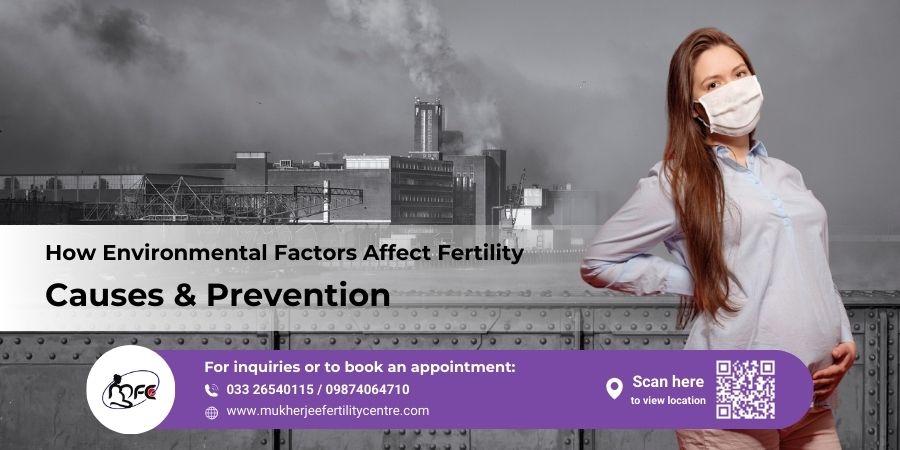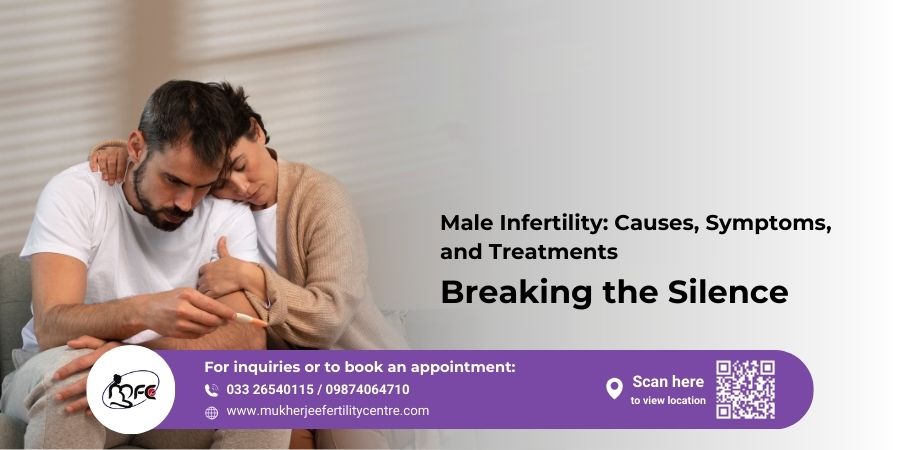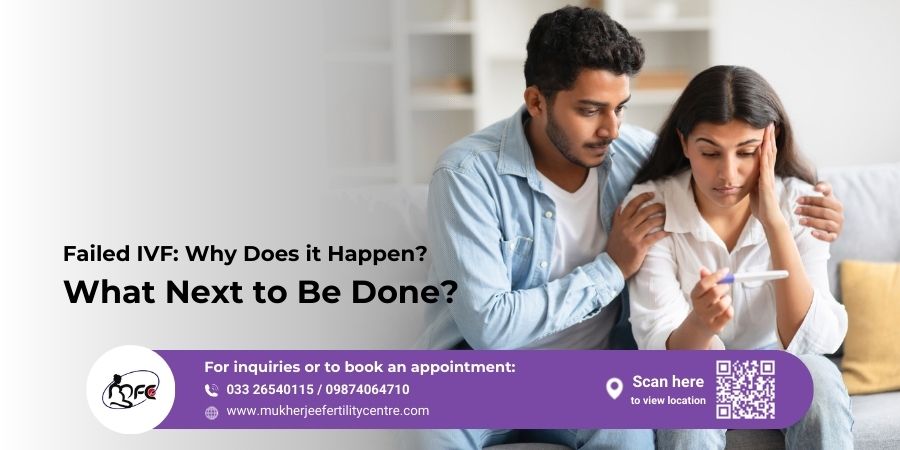
Failed IVF: Why It Happens & What to Do Next | Mukherjee Fertility Centre
By MFC on 28,Dec 2024
In vitro fertilization (IVF) has revolutionized fertility treatments, offering hope to countless couples struggling to conceive. However, as promising as IVF is, it doesn’t guarantee success for everyone. Experiencing a failed IVF cycle can be emotionally devastating, leaving many wondering, “Why did this happen, and what should I do next?”
Understanding the causes of IVF failure and knowing the next steps can help you regain confidence and continue your journey toward parenthood. Let’s delve into the reasons behind failed IVF cycles and explore the options available to move forward.
Why Does IVF Fail?
IVF failure can occur for several reasons, even when embryos appear healthy. Here are some of the most common factors:
- Embryo Quality Issues
- Uterine Environment Problems
- Age of the Woman
- Hormonal Imbalances
- Sperm Quality
- Lifestyle Factors
- Embryo Transfer Technique
- Immune System Issues
Although an embryo may look good under a microscope, it might not have the genetic viability to implant or develop further. Chromosomal abnormalities are a significant cause of failed IVF cycles.
The uterus must be receptive for an embryo to implant successfully. Conditions like thin endometrium, fibroids, or polyps can interfere with implantation.
A woman’s age significantly affects egg quality. Women over 35 often face reduced success rates due to declining ovarian reserve and egg quality.
Improper hormonal stimulation during the IVF process can result in poor-quality eggs or hinder the uterus's ability to support implantation.
Male factor infertility, including low sperm count or poor sperm motility, can also contribute to IVF failure.
Smoking, obesity, and stress can negatively affect egg and sperm quality, as well as the overall IVF process.
Even with good embryos, improper placement during the transfer process can reduce the likelihood of implantation.
An overactive immune system can attack the embryo, preventing successful implantation.
Symptoms of IVF Failure
Failed IVF cycles may present with symptoms like:
- The onset of menstruation or spotting.
- Lack of pregnancy symptoms.
- Negative pregnancy test results.
However, not all women experience symptoms, and a failed IVF is often confirmed through blood tests or ultrasound.
What Happens to Your Body After Failed IVF?
After a failed IVF cycle, it’s common to experience physical and emotional symptoms:
- Physical Changes: The hormonal medications used during IVF can lead to bloating, fatigue, or mood swings. Some women might also experience bleeding or spotting when their period returns, which typically happens 1-2 weeks after a failed IVF cycle.
- Emotional Impact: Many couples go through the stages of grief after a failed IVF cycle, including denial, anger, depression, and eventually acceptance.
What to Do After a Failed IVF Cycle?
A failed IVF cycle doesn’t mean the end of your fertility journey. Here’s what you can do next:
- Understand the Cause
- Emotional Support
- Make Lifestyle Changes
- Consider Additional Tests
- Plan the Next Steps
Schedule a follow-up consultation with your fertility specialist to discuss potential reasons for the failure. Tests like hysteroscopy, genetic screening, or advanced sperm analysis can provide valuable insights.
Seek counseling or join a support group to navigate feelings of loss and depression after a failed IVF attempt. Managing your emotional well-being is crucial before attempting another cycle.
Improving lifestyle factors such as maintaining a healthy weight, quitting smoking, reducing alcohol consumption, and managing stress can increase your chances of success in subsequent IVF cycles.
Tests like Preimplantation Genetic Testing (PGT) can identify chromosomally normal embryos, improving implantation rates and reducing the chances of miscarriage.
Depending on the findings, your doctor may recommend another IVF cycle with adjusted protocols, donor eggs or sperm, or even exploring surrogacy or adoption.
Why Does IVF Fail the First Time?
The first IVF attempt is often a learning experience for both the couple and the fertility team. Each cycle provides insights into how your body responds to medications and procedures. Subsequent cycles can be tailored based on these findings to improve success rates.
When to Expect Your Period After a Failed IVF Cycle?
Most women experience their period 7-14 days after a failed IVF cycle. It’s important to monitor your symptoms and consult your doctor if there are any concerns.
3 Failed IVF Cycles: What Next?
If you’ve undergone three failed IVF cycles, it’s time to reassess the approach. Options include:
- Using donor eggs or sperm.
- Trying advanced treatments like Intracytoplasmic Sperm Injection (ICSI) or PGT.
- Exploring alternative paths like surrogacy or adoption.
Dr. Shiuli Mukherjee and her team at Mukherjee Fertility Centre specialize in designing personalized fertility plans for couples who have faced multiple failed IVF attempts.
Stages of Grief After Failed IVF
Couples experiencing IVF failure often go through emotional stages, including:
- Denial: Struggling to accept the failure.
- Anger: Frustration about the process.
- Bargaining: Hoping for different outcomes.
- Depression: Feeling hopeless or unmotivated.
- Acceptance: Planning the next steps with a clear mindset.
Recognizing these stages can help couples cope better and seek timely support.
Consult an Expert for Guidance
If you’ve experienced a failed IVF cycle, consult with Dr. Shiuli Mukherjee, a renowned fertility specialist at Mukherjee Fertility Centre. Her expertise in fertility treatments and personalized care ensures that you receive the best guidance for your next steps.
FAQs
- Why does IVF fail with good embryos?
- What happens to your body after failed IVF?
- What to do after failed IVF?
- Why does IVF fail the first time?
- When to expect your period after failed IVF?
Even good embryos can fail to implant due to uterine issues, immune system problems, or genetic abnormalities.
You may experience hormonal changes, physical discomfort, and emotional distress.
Discuss the reasons with your doctor, consider additional tests, and make lifestyle changes for better outcomes in subsequent cycles.
The first cycle often provides insights into how your body responds, helping doctors optimize future treatments.
Most women get their period within 1-2 weeks after a failed IVF cycle.
For more information or to book an appointment, contact Mukherjee Fertility Centre at 9874064710 or 033 2654 0115. Visit our website at Mukherjee Fertility Centre for expert guidance and support.


